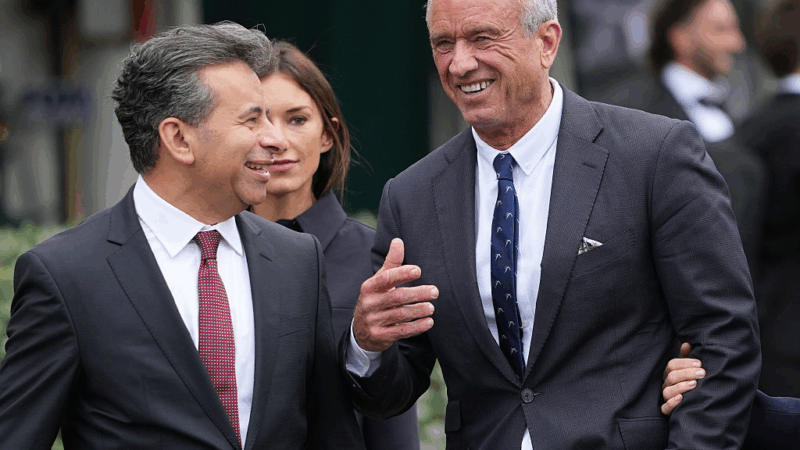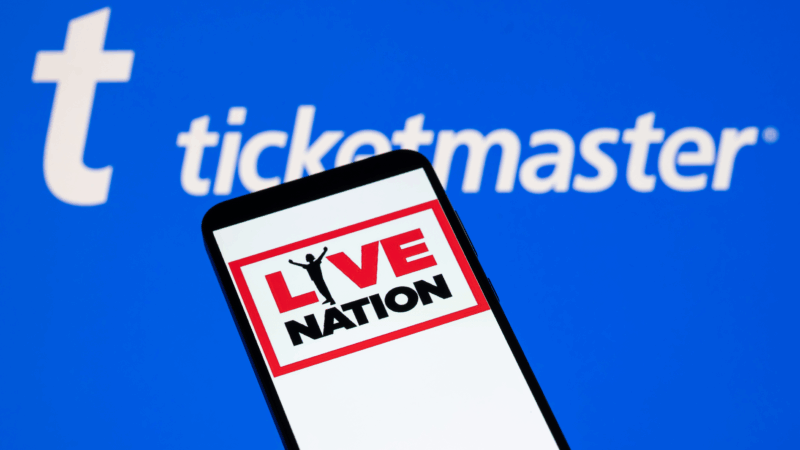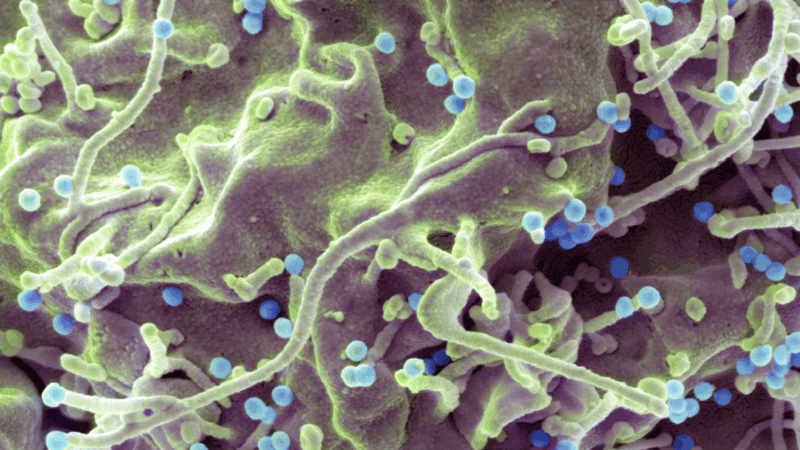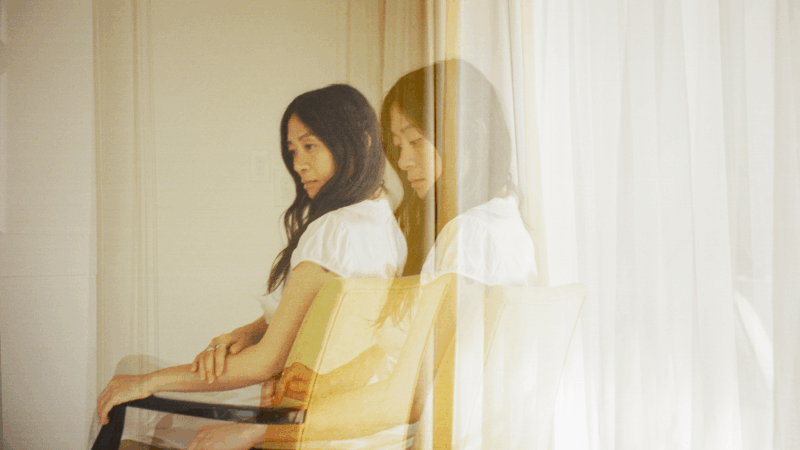Ancient miasma theory may help explain Health Secretary Robert F. Kennedy Jr.’s vaccine moves
Health Secretary Robert F. Kennedy Jr. has upended medical research and public health in the U.S. in many ways. One of the ideas that could be influencing his overhaul of federal health agencies dates back to ancient Greece.
The miasma theory is one of the first ideas that civilization hatched to try to explain why people get sick.
“It goes back to Hippocrates,” says Dr. Howard Markel, an emeritus professor of medical history from the University of Michigan, Ann Arbor. “He wrote in a book called Epidemics, that epidemics came from some type of pollution – some pollution of the atmosphere, of the air that we breathe. And hence we got terrible infectious diseases.”
This idea that, in essence, bad air caused illness was later championed by many others, including Florence Nightingale. It also led to some things that did help fight diseases, like cleaning up sewage.
But then came the germ theory — one of humanity’s big eureka moments. Scientists like Louis Pasteur and Robert Koch discovered it wasn’t some mysterious stench in the air from rotting garbage that spread diseases. Instead, it was living microscopic entities.
“They discovered what we know as germs – microbes,” says Melanie Kiechle, a historian at Virginia Tech. “Bacteria and viruses and other microscopic materials were actually what caused illness and also explained the spread of illness from one person to another. So miasma theory is debunked, essentially.”
The discovery of germs led to breakthroughs like antibiotics and vaccines.
But in a book Kennedy published about four years ago, The Real Anthony Fauci: Bill Gates, Big Pharma, and the Global War on Democracy and Public Health, the now- health secretary harkens back to the miasma theory.
“Miasma theory emphasizes preventing disease by fortifying the immune system through nutrition and reducing exposures to environmental toxins and stresses,” Kennedy writes.
But experts say one problem is how Kennedy defines miasma theory.
“I will categorically say that miasma theory, as historians of medicine and science understand it, is not what he is saying it is, period,” says Nancy Tomes, a historian of germ theory at Stoney Brook University, who wrote The Gospel of Germs: Men, Women and the Microbe in American Life.
But Kennedy’s take may help explain some of his policies, especially about vaccines.
“The miasma theory is the notion that there are environmental poisons, not necessarily rotting organic matter,” says Dr. Paul Offit, a vaccine expert at the University of Pennsylvania. “For him, those environmental poisons are electromagnetic radiation, pesticides, vaccines. Vaccines are, for him, a modern-day miasma.”
And that’s dangerous, many experts say.
“Can stress, air pollution, other things, make infections worse? Yes. But the cause of infections is a microorganism,” says Dr. Tina Tan, who heads the Infectious Disease Society of America. “It’s the microorganisms that are making people sick.”
And vaccines have clearly been shown to safely and effectively protect people against dangerous microorganisms, Tan and others say.
“He’s trying to give this false veneer of intellectualism by saying, ‘Oh, the miasma theory,'” says Dr. Amesh Adalja, a senior scholar at the Johns Hopkins Bloomberg School of Public Health Center for Health Security. “This all just obfuscation to support his idea that vaccines are not valuable.”
But some other observers argue that Kennedy’s ideas about the miasma and germ theories aren’t necessarily mutually exclusive.
“The real debate here is whether we can solve public health problems by developing treatments like vaccines, antibiotics, or other drugs? Or whether we will solve these problems by strengthening people’s immune systems through healthier habits?” says Gregg Girvan, a resident fellow at the Foundation for Research on Equal Opportunity, a Washington think tank. “And my response is, ‘Why can we not acknowledge that there is truth in both positions?'”
Kennedy’s office did not respond to NPR’s request for more information about his views about the miasma and germ theories.
This quiet epic is the top-grossing Japanese live action film of all time
The Oscar-nominated Kokuho tells a compelling story about friendship, the weight of history and the torturous road to becoming a star in Japan's Kabuki theater.
The Live Nation trial could reshape the music industry. Here’s what you need to know
On Tuesday opening statements will begin for the federal antitrust trial against Live Nation, one of the largest entertainment companies in the world.
A new one-a-day-pill holds promise for HIV’s ‘forgotten population’
It's designed to take the place of complicated, multiple drug regimens that many people with HIV need to follow. And it's also beneficial because the HIV virus is always evolving.
For filmmaker Chloé Zhao, creative life was never linear
Director Chloé Zhao used meditation, somatic exercises and dance to inspire the cast and crew of this Oscar-nominated story about William Shakespeare's family.
10 new books in March offer mental vacations
March is always a big one for books – this year is no different. We call out a handful of upcoming titles for readers to put on their radars — offering a good alternative to doomscrolling.
Sen. Chris Coons, D-Del., talks about the war with Iran and upcoming war powers vote
NPR's A Martínez asks Delaware Democrat Chris Coons, a member of the Senate Foreign Affairs Committee, about the war with Iran.







